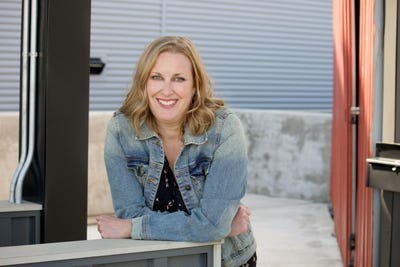A B&I Q&A with Compass Group's new Krafted Kitchen Collection that addresses business dining's biggest quandariesA B&I Q&A with Compass Group's new Krafted Kitchen Collection that addresses business dining's biggest quandaries
The new Compass sector, which has already won a CBRE Award, finds intersections for experiential business dining in the new work climate through things like local restaurant tie-ins, group meal delivery, food trucks, fun pop-ups and more.

As hybrid workweeks and customization-craving workers continue to shape the B&I dining landscape, there are a few key qualities emerging when it comes to what a foodservice provider can offer to the workforce: The precision focus of a surgeon to identify what this particular organization needs; the mystic powers of a fortune teller to predict when and where workday eating will occur for the next quarter... or the next decade; and the marketing know-how and persuasive qualities of a Little Italy waiter standing in the doorway, beckoning you to "Come on in here, Sweetie! We've got good stuff going on in here."
This new reality of fragmented needs and unrealistic expectations of "return to normalcy" post-pandemic has led B&I to a "be all things to all businesses" model, where it's important to decipher whether you should enhance your client's current foodservice or come up with something entirely new.
Krafted Kitchen Collection is Compass Group's newest sector, and it's meant to be an efficient-yet-flashy shape-shifter.

EAT Club focuses on highly customizable individual meal delivery that's delivered as a group.
That shape-shifting aspect means working with existing programs, delving into delivery, building unattended cafes, incorporating local restaurants and creating trendy pop-ups that grab attention anywhere, from a Manhattan street corner to a corporate cul-de-sac in Suburbia, USA.
The collection is made up of a few different brands: Foodworks (the connection to local restaurants, food trucks and other entrepreneurs), EAT Club (highly customizable individual meal delivery that's delivered as a group, best for office towers) and Virtual Cafe (a solution for situations with limited space or no kitchen). These innovations recently won commercial real estate firm CBRE's Supplier Innovation Challenge, with the theme Innovate to Thrive.
"Krafted Kitchen was created in direct response to the challenges businesses faced during the pandemic," says Ricky Postiglione, experience director for Krafted Kitchen Collection. "With remote and hybrid work models reshaping the workplace, we saw an opportunity to deliver flexible, hospitality-driven solutions that didn’t require companies to invest in onsite kitchen infrastructure. By offering creative and scalable meal programs, we allowed businesses to maintain food perks that support employee satisfaction and engagement while adapting to the new dynamics of workplace dining."
Read on for some "A"s to our business dining "Q"s:
_(1).jpg?width=700&auto=webp&quality=80&disable=upscale)
Photo courtesy of Krafted Kitchen Collection | Foodworks partners with some of the best local restaurant partners across the country, like Katz’s Deli in NYC.
FSD: What have you found that businesses are looking for in foodservice now? How has that changed from 10 years ago?
RP: "Business dining priorities have evolved significantly over the past decade. Today, companies are focused on solutions that: Support hybrid workplaces, accommodating varying schedules and onsite needs; foster employee retention and attraction through elevated, thoughtful food options; integrate into DEI initiatives by celebrating cultural diversity through cuisine; emphasize local partnerships to support communities and promote sustainability; and additionally, businesses want to surprise and delight employees, creating memorable experiences that reinforce the value of coming into the office."
FSD: How do you help future clients figure out the best options for them, since you offer so many?
RP: "We start by listening. Every conversation begins with understanding the client’s unique goals — whether that’s boosting employee engagement, aligning with sustainability efforts, or creating an experience that’s tailored to their culture. Once we know their objectives, we guide them toward the right solutions from our wide array of offerings, ensuring they align with their needs, budget, and vision."
FSD: And how do you see workplace dining evolving as time goes on?
RP: "Workplace dining will continue to evolve to meet the needs of an increasingly flexible workforce. Hybrid models will demand more customizable and portable options, and technology will play a key role in providing seamless experiences. Additionally, companies will continue to lean into sustainability, diversity, and creating moments of joy through food. We also anticipate more integration of dining into employee well-being and mental health initiatives, reflecting the shift toward holistic workplace support."
FSD: Is the feeling of community and eating together making a comeback to the workday?
"Absolutely. While we've seen that some markets have been slower to return to in-person work, the sense of community is more important than ever. With hybrid schedules, employees may only come together in the office once or twice a week, making shared meals a meaningful opportunity to connect. Dining together fosters collaboration, builds camaraderie, and reinforces a sense of belonging — making it a cornerstone of workplace culture in the evolving office environment. We are turning our spaces in to destinations for our guests that will make them want to return more frequently. Top quality food programs, warm hospitality, unique experiences and beautifully curated spaces are bringing our workplace community together."
About the Author
You May Also Like




.jpg?width=300&auto=webp&quality=80&disable=upscale)

